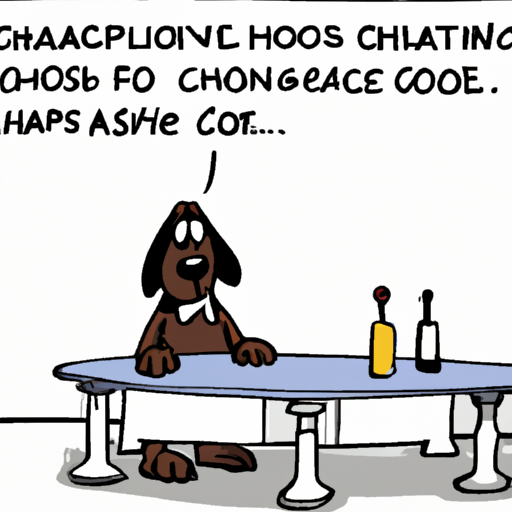Dogs are like family. They are our best friends, our confidants, and our companions. And just like we wouldn’t feed our human family members foods that could harm them, it is equally important to be aware of the foods that can be harmful to our canine companions. This comprehensive guide covers all aspects of what food dogs can’t have, and it’s a must-read for every dog owner.
Table of Contents
- Foods that are Toxic to Dogs
- Common Household Foods Dogs Should Avoid
- Foods that Can Cause Allergic Reactions in Dogs
- FAQs
Key Takeaways
- Dogs can’t eat certain foods because they can be toxic or cause allergic reactions.
- Common household foods like chocolate, grapes, and onions are harmful to dogs.
- Always consult a veterinarian if you are unsure about feeding certain foods to your dog.
Foods that are Toxic to Dogs
When it comes to feeding our dogs, it’s important to know which foods are toxic. Some foods we enjoy can be extremely harmful to our furry friends.
Chocolate is one of the most well-known foods that dogs can’t eat. It contains theobromine, which is toxic to dogs and can cause vomiting, diarrhea, and in severe cases, seizures, and even death. The darker the chocolate, the more theobromine it contains. For more detailed information about chocolate toxicity in dogs, check out this article by the American Kennel Club.
Grapes and raisins are another common food that dogs should not eat. They can cause acute kidney failure in dogs, and there is no known safe quantity. Even just a small amount can make a dog ill.
Onions, garlic, chives, and leeks are all part of the Allium family, and are toxic to dogs. They can cause anemia by damaging red blood cells, which can lead to weakness, breathlessness, and an elevated heart rate.
The list of toxic foods for dogs also includes macadamia nuts, coffee, alcohol, and xylitol, a common sweetener found in many foods.
Common Household Foods Dogs Should Avoid
Aside from the toxic foods, there are several other common household foods that dogs should avoid because they can cause stomach upset or pose a choking hazard.
Dairy products, including milk, cheese, and ice cream, can cause digestive problems in dogs because they lack the enzyme to break down lactose.
Bones, particularly cooked ones, can splinter and cause blockages or tears in the digestive system. They can also pose a choking hazard. For a safe alternative, consider specially designed dog chews or toys.
This blog post from One Top Dog provides a more extensive list of common household foods dogs should avoid.
Foods that Can Cause Allergic Reactions in Dogs
Just like humans, dogs can have food allergies too. Wheat, corn, soy, dairy, and eggs are common allergens for dogs. Symptoms of food allergies can include itching, redness, swelling, and gastrointestinal issues. If you suspect your dog has a food allergy, it’s important to consult a vet.
This article on One Top Dog explains more about common dog allergies and how to treat them.
Frequently Asked Questions
1. Can dogs eat peanut butter?
Yes, most dogs can eat peanut butter in moderation. However, make sure it does not contain xylitol, a sweetener that is toxic to dogs.
2. Can dogs eat apples?
Yes, dogs can eat apples. However, the seeds and core should be removed as they can pose a choking hazard.
3. Can dogs eat bananas?
Yes, bananas are safe for dogs to eat in moderation. They are high in potassium, vitamin B6, and vitamin C.
4. Can dogs eat popcorn?
Yes, dogs can eat popcorn as long as it is plain and fully popped. Unpopped kernels can be a choking hazard.
5. Can dogs eat bread?
Yes, plain bread is safe for dogs to eat in moderation. However, bread does not provide any significant health benefits and should not replace a balanced diet.
6. Can dogs eat rice?
Yes, cooked rice is safe for dogs and is often used as a filler in dog food.
Conclusion
As a dog owner, it’s important to know what foods are safe for your pet to consume. Always be aware of the potential dangers lurking in your kitchen and consult with your vet if you have any doubts. And remember, a well-fed dog is a happy dog.
For more dog care tips, check out this guide on One Top Dog.



